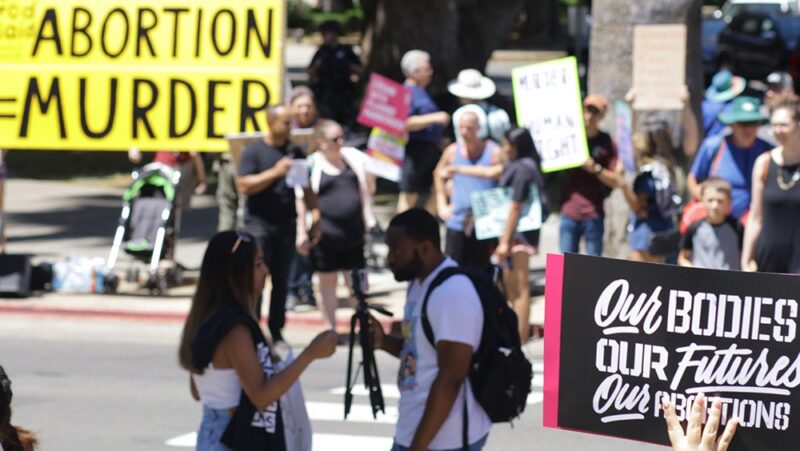6 First Amendment Stories to Watch in 2024
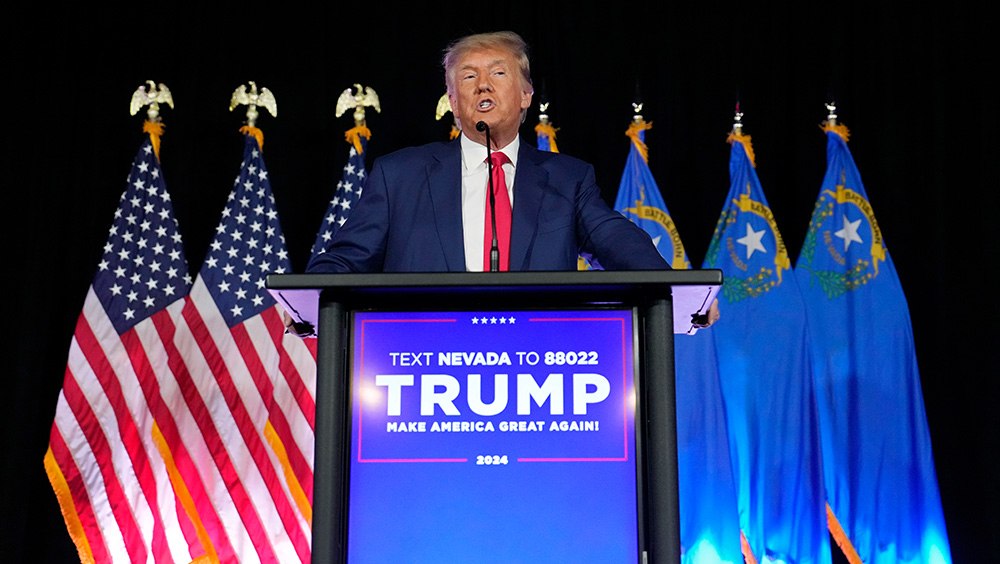
The First Amendment was written more than 200 years ago. But the ways its principles and ideals apply to modern life are always evolving. 2023 saw big, growing questions about First Amendment issues like gag orders, religion and schools, and debate about international conflict.
2024 is sure to see further developments on these First Amendment issues and more. These are just a few of the First Amendment stories the Freedom Forum will be watching throughout the year.
Discover six of the top First Amendment stories to watch in 2024
As Freedom Forum experts look ahead at what’s to come, these are some of the current events that are likely to be First Amendment stories to watch in 2024. They include looming court cases, technology developments, and ongoing social issues that affect the freedoms of religion, speech, the press, assembly and petition.
Government regulation of social media
Just how much speech should be allowed by social media companies?
Social media platforms are run by private companies. They can set their own policies for what content they will allow. They do not violate the First Amendment when they moderate content. In fact, their moderation decisions are protected by the First Amendment. But the government is increasingly stepping into this conversation. More states have considered or passed laws to regulate who can use which social media platforms and for what kind of content.
2024 will bring court decisions about whether such laws violate the First Amendment.
A judge recently ruled that a Montana ban on the popular video app TikTok cannot go into effect on Jan. 1 as planned. Because it likely violates the free speech rights of TikTok and its users, the judge put the law on hold while a case against it continues.
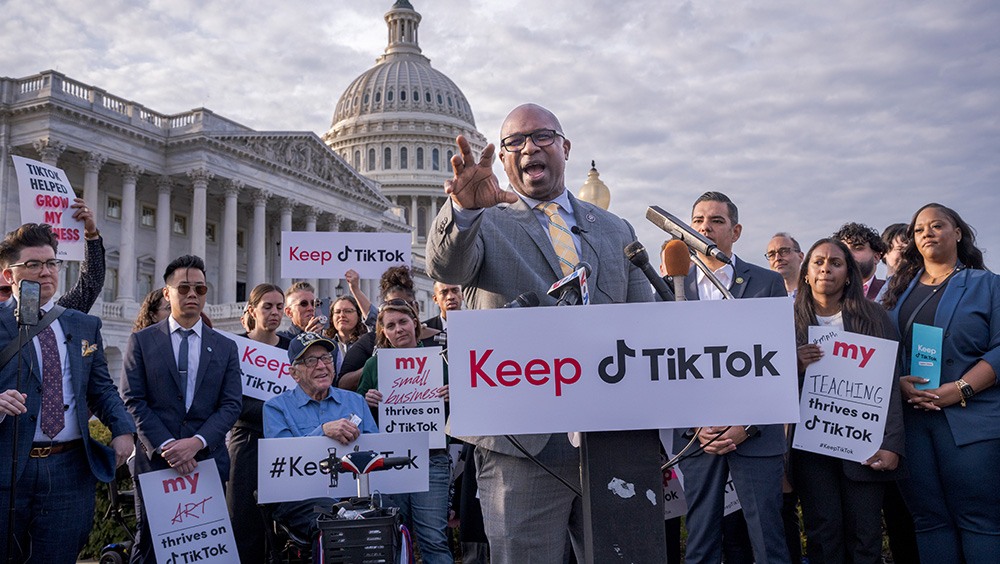
Rep. Jamaal Bowman leads a rally to defend TikTok at the Capitol in Washington on March 22, 2023.
In other states, new laws put age limits or parental permission requirements on the use of social media platforms. Such laws in Arkansas, California, Texas and Utah have been put on hold while courts consider whether the limits violate free speech rights.
The Supreme Court will hear two cases about laws regulating how social media companies moderate content on their platforms. The 2021 Florida and Texas laws have been tied up in courts since they were passed. The Texas law says that large social media sites cannot block content or users based on users’ views. Florida’s bars social media companies from banning political candidates or journalistic organizations.
Lower courts issued opposite rulings about whether the laws violate the First Amendment, upholding the Texas law and striking down the Florida law. In both cases, the losing parties asked the Supreme Court to rule.
With a presidential election looming, 2024 may also see questions and challenges about election information on social media. Can platforms ban election content they believe is false? Can they be required to allow all election- or campaign-related speech? These cases likely will answer these questions.
RELATED: How to spot "fake news"
AI and free speech
ChatGPT, a software that uses artificial intelligence and large data sets to answer user questions in a natural sounding way, launched more than a year ago.
The program and similar apps that create text, images and video content have quickly become popular. Their use is raising new free speech questions likely to develop in 2024.
One question is who is responsible if content created by such a program and published is found to be illegal – for example, if it is defamation. Would such responsibility fall on the publisher of the content or the creators of the program? Legal scholars have been debating these questions. Court cases can’t be far behind.
A federal court ruled in August 2023 that AI work produced without human input cannot be copyrighted. In other words, it may be free speech protected from government limits, but it isn’t protected from other people copying it or claiming it as their own.
But there are still questions about programs that generate material based on published work.
Groups of visual artists, fiction authors and nonfiction writers are all suing over the programs’ use of creators’ work without permission. Copyright and trademark law are designed to protect artists’ expressions from being copied by others without permission or who claim the work as their own.
Some claims that any work produced by these programs violates copyright because they are too similar to published work have been dismissed. But claims that using copyrighted material to develop the software in the first place violates copyright will go to court.
RELATED: Free expression or infringement? 10 famous copyright cases to know
Religious freedom and abortion
Do laws that limit abortion access violate religious freedom?
Since Roe v. Wade was overturned in June 2022, some states have added abortion access to their constitutions. Some have passed laws to limit abortion access in ways that would not have been allowed under Roe.
People of all faiths and none are on all sides of this issue.
Some religious groups claim limits on abortion access violate religious freedom protections under the First Amendment and other laws, which extend protections to situations where the First Amendment would not normally apply.
Such advocates say the limits are sometimes religiously motivated. If so, requiring others to follow one set of religious beliefs violates the First Amendment. Advocates also say limits on abortion access violate the religious freedom rights of faith groups for whom abortion access is a belief.
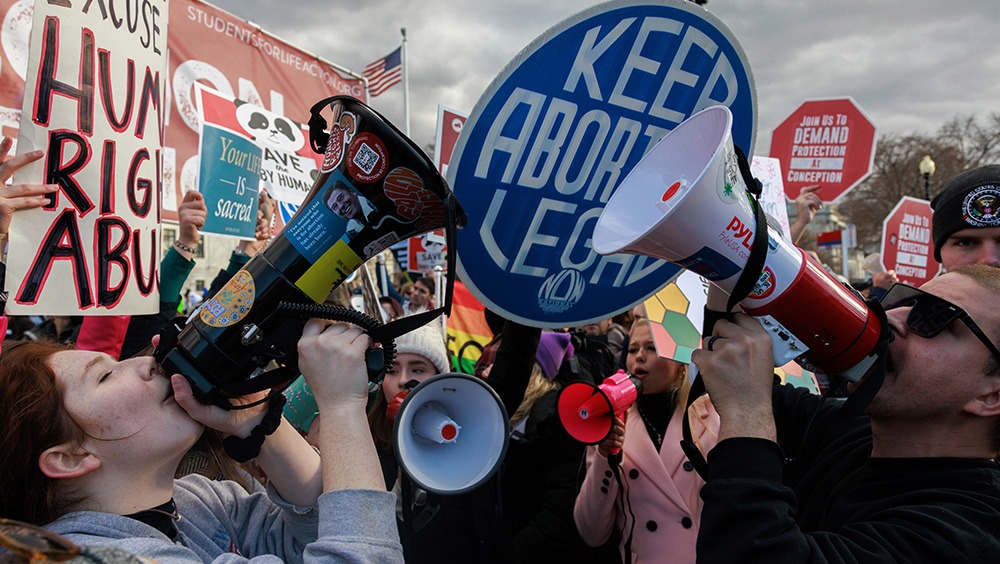
Anti-abortion rights demonstrators and pro-abortion rights demonstrators protest outside the Supreme Court at the 50th annual March For Life in Washington, D.C. on January 20, 2023.
The Satanic Temple lost such a challenge in Indiana after it couldn’t show specific members who were affected.
But according to The New York Times, about 15 similar lawsuits are ongoing in eight states. That includes a challenge in Indiana brought by several faith groups.
Similarly, a group of Christian, Jewish and Unitarian Universalist leaders argued in court that Missouri’s abortion restrictions violate the state constitution by imposing religious beliefs on others. Missouri’s Attorney General disputes the claim.
In Florida, Episcopal, Buddhist and United Church of Christ faith groups are challenging abortion restrictions.
Some groups seek to overturn laws restricting abortion, while others seek exemptions for members of their religious communities.
Such suits will work their way through courts in 2024, so look out for more cases and rulings – including court rulings that don’t align with each other.
When businesses can turn away expression
The Supreme Court said in June 2023 that businesses can’t be required to create messages that conflict with their own beliefs.
Under the First Amendment, it is very difficult for the government to limit speech. It is also very difficult for the government to require speech.
In the Supreme Court case 303 Creative LLC v. Elenis, the business in question wanted to design and create websites. The owner did not want to be required to create websites celebrating same-sex marriages. The court said that a business cannot discriminate against customers based on characteristics protected by law – race, religion, ethnicity, national origin, gender or sexual orientation.
But the court said 303 Creative wouldn’t be turning away customers. It was just refusing to express a particular message, and that was OK.
So now, the practical question becomes: What business services are “expression”?
For example, a Colorado baker with concerns about filling cake orders contrary to his beliefs has already been to the Supreme Court once. Now he is back in the courts. He declined to produce a pink and blue cake for a gender transition. A Colorado court ruled that baking and frosting the cake didn’t count as speech. Refusing to make the cake violated a state law against refusing service based on race, religion or gender.
In 2024, courts may hear an increase in cases testing when businesses may decline to create expression, and when they may not discriminate based on customers’ identity. Photography is often considered free speech. Can photographers decline to take pictures of an event or celebration that violates their beliefs? Can a tailor refuse to sew an outfit or a caterer decline to assemble a sandwich?
Public funding for religious charter schools
Under the First Amendment, the government can neither favor religion nor discriminate against religion. This can create tension, like when it comes to schools.
The Supreme Court has recently ruled more in favor of religious exercise, including in public and private schools. For example, the court said that students attending religious schools in Maine couldn’t be excluded from tuition benefits.
In 2024, the boundaries of government support for private, religious schools will be tested.
Oklahoma state education officials recently approved the creation of what would be the first publicly funded religious charter school, planned to open in 2024.
Charter schools blur the public-private line. A lawsuit is testing Oklahoma’s decision to permit and fund the school. As the case moves through the courts, religious and education groups in other states will be watching.
Many experts predict the case will make its way to the Supreme Court.
RELATED: Can the government fund religious schools?
Trump election cases
During and after the 2020 election, then-President Donald Trump made repeated claims about the presidential election results, including suggesting fraud and claiming he won.
Federal prosecutors say he also acted to alter the results after the fact, such as by assembling false electors. They have charged him with four federal crimes related to fraud and obstruction.
He faces similar charges related to false filings in Georgia.
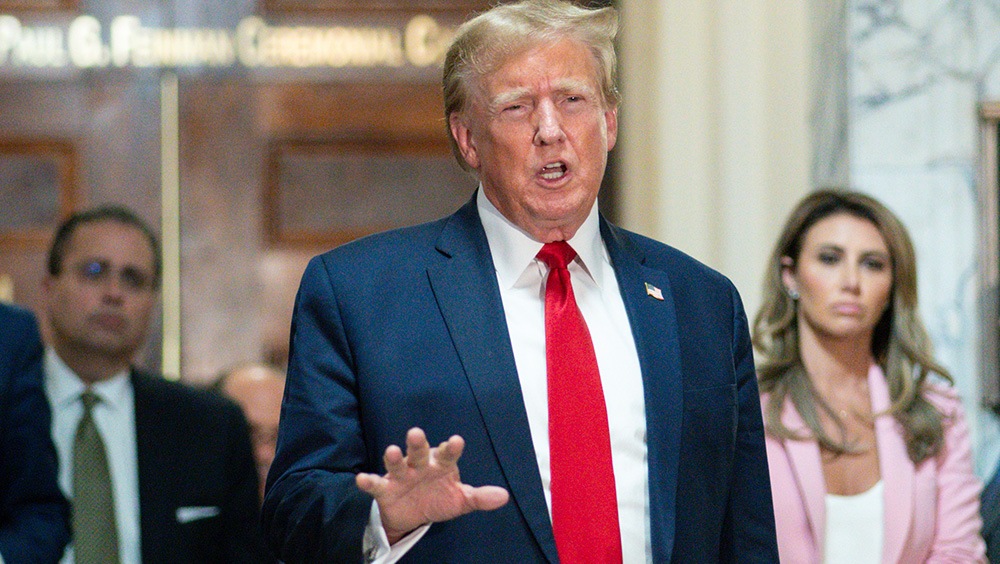
Former President Donald Trump speaks after exiting the courtroom for a break at New York Supreme Court on Dec. 7, 2023.
Trump’s lawyers claim the First Amendment protects his statements about the election.
A trial in the federal case is scheduled to begin in March. The Georgia case is set for trial in August. Trump’s legal teams are pushing for both cases to be dismissed.
Should they proceed, a key question will be whether Trump was engaged in political speech, which is highly protected by the First Amendment, or whether his actions went beyond speech into illegal actions.
How to track these First Amendment stories in 2024
Freedom Forum experts will be following these and other First Amendment stories in the year to come. Keep up to date with the latest at the Supreme Court and subscribe to the First Five newsletter for weekly First Amendment headlines from across the country. Also, be sure to follow us on X and Facebook for daily updates on all things First Amendment-related.

